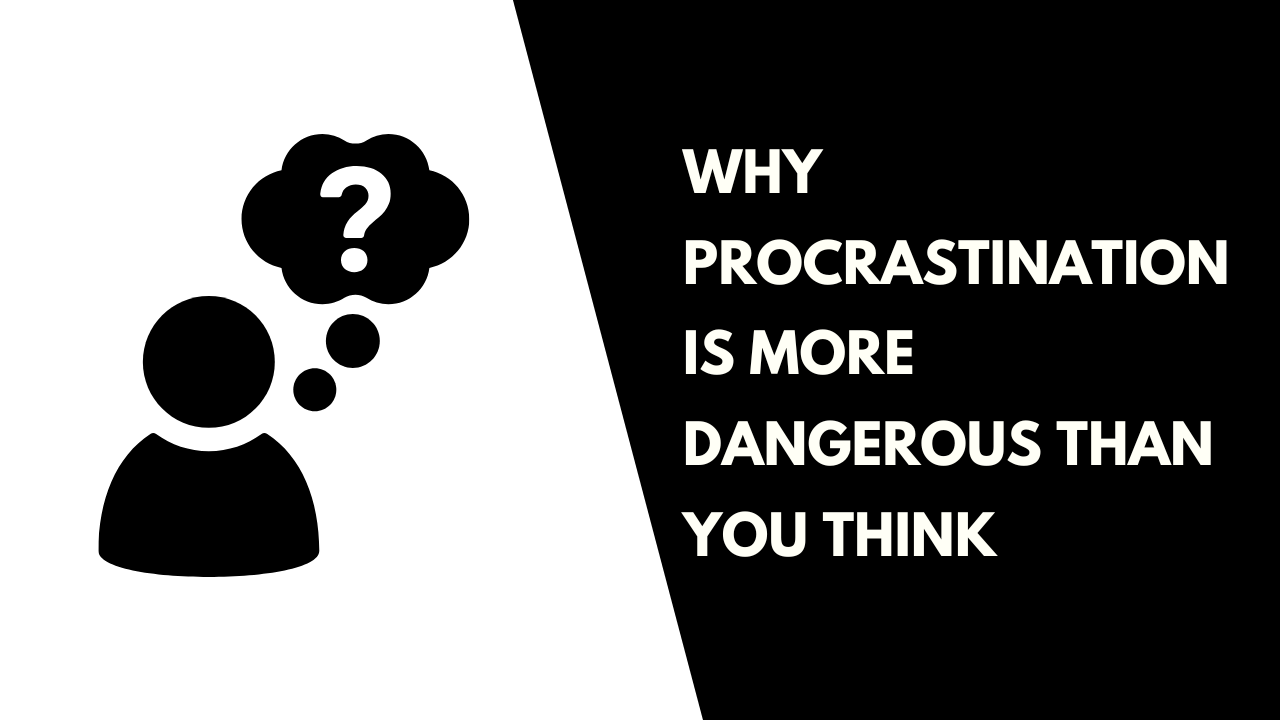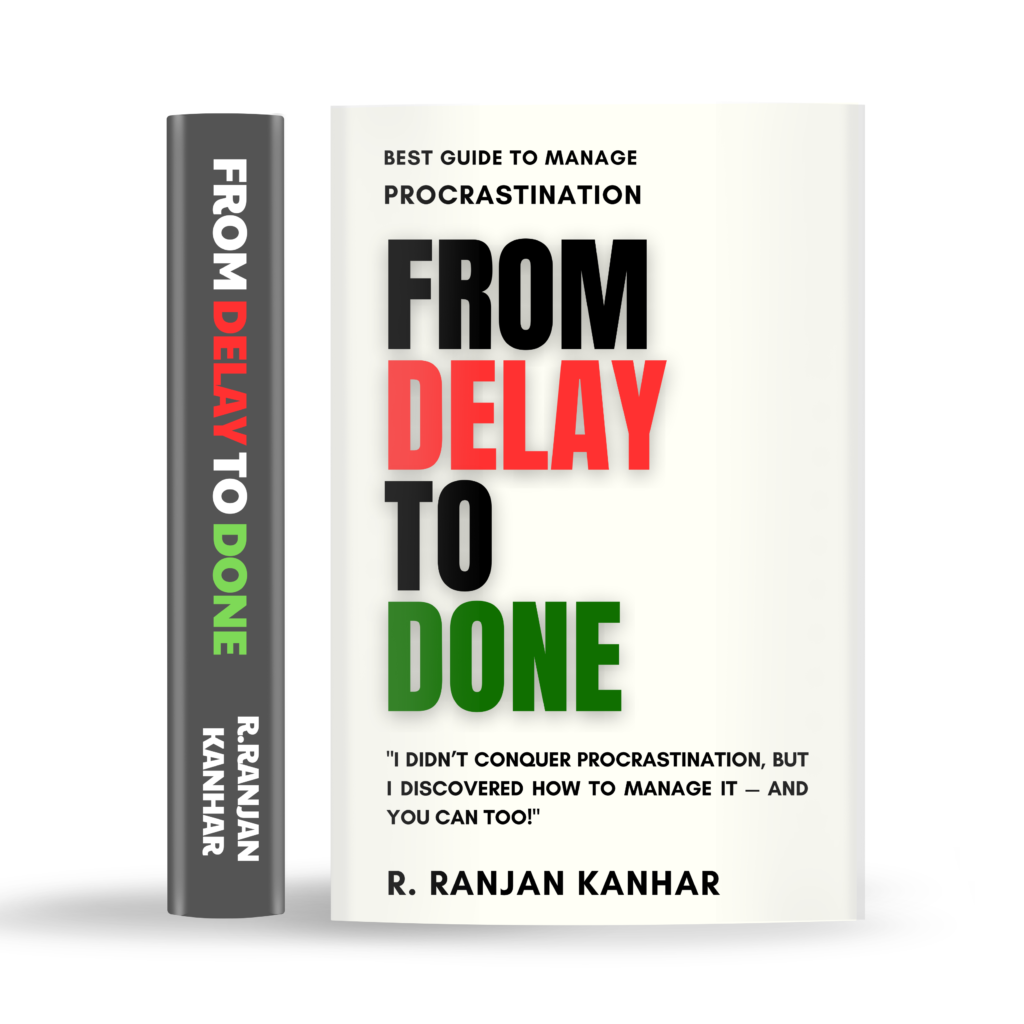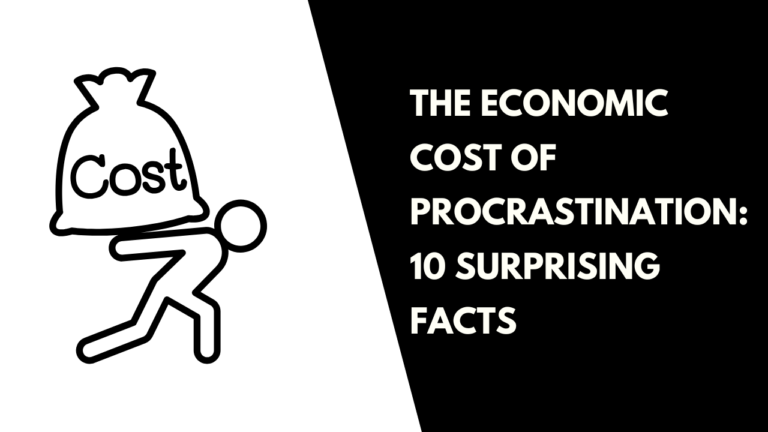Why Procrastination is More Dangerous Than You Think
Why Procrastination is More Dangerous Than You Think
Procrastination—an innocent delay in starting a task—might seem harmless at first. After all, what’s wrong with putting something off until tomorrow? However, when procrastination becomes a habit, it can stealthily erode your productivity, damage your mental health, and hinder your progress in life. In this blog, we’ll dive deep into why procrastination is more dangerous than you think, sharing real-life examples and actionable strategies to combat it.
Table of Contents
ToggleThe Silent Cost of Procrastination
At first glance, procrastination might feel like taking a much-needed break. You convince yourself that delaying a task will give you the mental clarity to perform better later. However, this often leads to a downward spiral of stress and inefficiency.
Real-Life Example: The Student Dilemma
Take Sarah, a college student. She had three weeks to complete an important research paper. Instead of starting immediately, she spent the first two weeks binge-watching her favorite series, convincing herself there was “plenty of time.” In the final week, Sarah rushed through her work, sacrificing sleep and delivering a subpar paper. The result? A poor grade and overwhelming regret.
This is a prime example of why procrastination is more dangerous than you think. It lures you into a false sense of security, only to hit you with severe consequences later.
How Procrastination Harms Your Mental Health
1. Increased Stress and Anxiety
When you procrastinate, deadlines loom closer, and the pressure to perform builds. This stress can spiral into anxiety, affecting your ability to focus and think clearly.
Example: The Work Presentation Panic
Imagine John, a marketing manager, who delayed preparing for a high-stakes presentation. The night before, he found himself overwhelmed, doubting his abilities and unable to sleep. By the time he delivered the presentation, his anxiety was so evident that it impacted his performance and his team’s confidence in him.
2. Reduced Self-Esteem
Procrastination often leads to missed opportunities and failures, making you question your abilities. The more you procrastinate, the harder it becomes to break the cycle, creating a sense of helplessness.
Example: The Missed Promotion
Emma, an accountant, procrastinated on learning a new software skill her company valued. When a promotion opportunity arose, she was overlooked because she didn’t have the necessary qualifications. This shattered her confidence and left her questioning her career trajectory.
This story highlights why procrastination is more dangerous than you think—it not only hinders your progress but also diminishes your self-worth.
3. Relationship Strain
When procrastination affects commitments, it can strain personal and professional relationships. Missing deadlines, canceling plans, or not delivering on promises can make others perceive you as unreliable.
Example: The Forgotten Birthday Gift
David promised his best friend he’d get a special gift for their birthday. He delayed shopping until the last minute, only to find the item sold out. His friend was hurt, and the relationship took a hit.
The Domino Effect of Procrastination on Productivity
Procrastination doesn’t just delay one task; it creates a ripple effect. As tasks pile up, you’re forced to multitask or abandon some altogether, leading to poor-quality work and lost opportunities.
Example: The Overwhelmed Entrepreneur
Sophia, a budding entrepreneur, delayed responding to emails and planning her product launch. As tasks accumulated, she found herself overwhelmed, and her business lost its momentum. She realized too late that procrastination had cost her valuable time and clients.
Why Procrastination is More Dangerous Than You Think: The Science
Studies reveal that procrastination isn’t just about laziness; it’s deeply rooted in psychology. It often stems from fear of failure, perfectionism, or a lack of self-discipline. Understanding these triggers is key to overcoming it.
Fear of Failure
You might delay starting a task because you’re afraid of not doing it well. This fear feeds procrastination, creating a vicious cycle.
Perfectionism
The desire to get everything “just right” can paralyze you, leading to endless delays. Perfectionism often masks itself as a commitment to quality but ultimately results in missed deadlines.
Lack of Discipline
Without a structured approach, it’s easy to lose focus and prioritize less important activities.
Actionable Strategies to Overcome Procrastination
Understanding why procrastination is more dangerous than you think is the first step. The next is taking action. Here are proven strategies to help you break the cycle:
1. Set Clear Goals
Break down your tasks into smaller, manageable steps. For example, instead of saying, “I’ll write the report,” set a goal like, “I’ll write the introduction today.”
2. Use the Pomodoro Technique
Work for 25 minutes, followed by a 5-minute break. This approach helps maintain focus and avoids burnout.
3. Create a Reward System
Reward yourself for completing tasks. For instance, treat yourself to your favorite snack after finishing a chapter of a book.
4. Identify Your Triggers
Reflect on what makes you procrastinate. Is it fear, boredom, or distractions? Addressing the root cause can help you stay on track.
5. Eliminate Distractions
Turn off notifications, clear your workspace, and set boundaries during work hours.
6. Practice Self-Compassion
Don’t beat yourself up for procrastinating. Acknowledge your behavior, forgive yourself, and focus on improvement.
Real-Life Success Story: Breaking Free from Procrastination
Meet Alex, a graphic designer. Alex struggled with procrastination for years, often missing deadlines and losing clients. One day, he decided to make a change. He started by setting daily goals, using time-blocking techniques, and holding himself accountable through a productivity app. Within months, Alex transformed his work ethic, gained new clients, and rebuilt his confidence.
Alex’s journey illustrates why procrastination is more dangerous than you think—and how taking small, consistent steps can lead to big changes.
Final Thoughts: Take Control Today
Procrastination is more than a harmless habit; it’s a silent thief that robs you of time, opportunities, and peace of mind. By understanding why procrastination is more dangerous than you think, you can take proactive steps to overcome it and unlock your true potential.
Remember, the best time to start is now. What small step will you take today to beat procrastination? Share your thoughts in the comments below!
Why Procrastination is More Dangerous Than You Think
Procrastination—an innocent delay in starting a task—might seem harmless at first. After all, what’s wrong with putting something off until tomorrow? However, when procrastination becomes a habit, it can stealthily erode your productivity, damage your mental health, and hinder your progress in life. In this blog, we’ll dive deep into why procrastination is more dangerous than you think, sharing real-life examples and actionable strategies to combat it.
The Silent Cost of Procrastination
At first glance, procrastination might feel like taking a much-needed break. You convince yourself that delaying a task will give you the mental clarity to perform better later. However, this often leads to a downward spiral of stress and inefficiency.
Real-Life Example: The Student Dilemma
Take Sarah, a college student. She had three weeks to complete an important research paper. Instead of starting immediately, she spent the first two weeks binge-watching her favorite series, convincing herself there was “plenty of time.” In the final week, Sarah rushed through her work, sacrificing sleep and delivering a subpar paper. The result? A poor grade and overwhelming regret.
This is a prime example of why procrastination is more dangerous than you think. It lures you into a false sense of security, only to hit you with severe consequences later.
How Procrastination Harms Your Mental Health
1. Increased Stress and Anxiety
When you procrastinate, deadlines loom closer, and the pressure to perform builds. This stress can spiral into anxiety, affecting your ability to focus and think clearly.
Example: The Work Presentation Panic
Imagine John, a marketing manager, who delayed preparing for a high-stakes presentation. The night before, he found himself overwhelmed, doubting his abilities and unable to sleep. By the time he delivered the presentation, his anxiety was so evident that it impacted his performance and his team’s confidence in him.
2. Reduced Self-Esteem
Procrastination often leads to missed opportunities and failures, making you question your abilities. The more you procrastinate, the harder it becomes to break the cycle, creating a sense of helplessness.
Example: The Missed Promotion
Emma, an accountant, procrastinated on learning a new software skill her company valued. When a promotion opportunity arose, she was overlooked because she didn’t have the necessary qualifications. This shattered her confidence and left her questioning her career trajectory.
This story highlights why procrastination is more dangerous than you think—it not only hinders your progress but also diminishes your self-worth.
3. Relationship Strain
When procrastination affects commitments, it can strain personal and professional relationships. Missing deadlines, canceling plans, or not delivering on promises can make others perceive you as unreliable.
Example: The Forgotten Birthday Gift
David promised his best friend he’d get a special gift for their birthday. He delayed shopping until the last minute, only to find the item sold out. His friend was hurt, and the relationship took a hit.
The Domino Effect of Procrastination on Productivity
Procrastination doesn’t just delay one task; it creates a ripple effect. As tasks pile up, you’re forced to multitask or abandon some altogether, leading to poor-quality work and lost opportunities.
Example: The Overwhelmed Entrepreneur
Sophia, a budding entrepreneur, delayed responding to emails and planning her product launch. As tasks accumulated, she found herself overwhelmed, and her business lost its momentum. She realized too late that procrastination had cost her valuable time and clients.
Why Procrastination is More Dangerous Than You Think: The Science
Studies reveal that procrastination isn’t just about laziness; it’s deeply rooted in psychology. It often stems from fear of failure, perfectionism, or a lack of self-discipline. Understanding these triggers is key to overcoming it.
Fear of Failure
You might delay starting a task because you’re afraid of not doing it well. This fear feeds procrastination, creating a vicious cycle.
Perfectionism
The desire to get everything “just right” can paralyze you, leading to endless delays. Perfectionism often masks itself as a commitment to quality but ultimately results in missed deadlines.
Lack of Discipline
Without a structured approach, it’s easy to lose focus and prioritize less important activities.
Actionable Strategies to Overcome Procrastination
Understanding why procrastination is more dangerous than you think is the first step. The next is taking action. Here are proven strategies to help you break the cycle:
1. Set Clear Goals
Break down your tasks into smaller, manageable steps. For example, instead of saying, “I’ll write the report,” set a goal like, “I’ll write the introduction today.”
2. Use the Pomodoro Technique
Work for 25 minutes, followed by a 5-minute break. This approach helps maintain focus and avoids burnout.
3. Create a Reward System
Reward yourself for completing tasks. For instance, treat yourself to your favorite snack after finishing a chapter of a book.
4. Identify Your Triggers
Reflect on what makes you procrastinate. Is it fear, boredom, or distractions? Addressing the root cause can help you stay on track.
5. Eliminate Distractions
Turn off notifications, clear your workspace, and set boundaries during work hours.
6. Practice Self-Compassion
Don’t beat yourself up for procrastinating. Acknowledge your behavior, forgive yourself, and focus on improvement.
Real-Life Success Story: Breaking Free from Procrastination
Meet Alex, a graphic designer. Alex struggled with procrastination for years, often missing deadlines and losing clients. One day, he decided to make a change. He started by setting daily goals, using time-blocking techniques, and holding himself accountable through a productivity app. Within months, Alex transformed his work ethic, gained new clients, and rebuilt his confidence.
Alex’s journey illustrates why procrastination is more dangerous than you think—and how taking small, consistent steps can lead to big changes.
Final Thoughts: Take Control Today
Procrastination is more than a harmless habit; it’s a silent thief that robs you of time, opportunities, and peace of mind. By understanding why procrastination is more dangerous than you think, you can take proactive steps to overcome it and unlock your true potential.
Remember, the best time to start is now. What small step will you take today to beat procrastination? Share your thoughts in the comments below!
“Stop postponing your dreams! From Delay to Done is your ultimate guide to conquering procrastination. Grab your copy today on Amazon!



